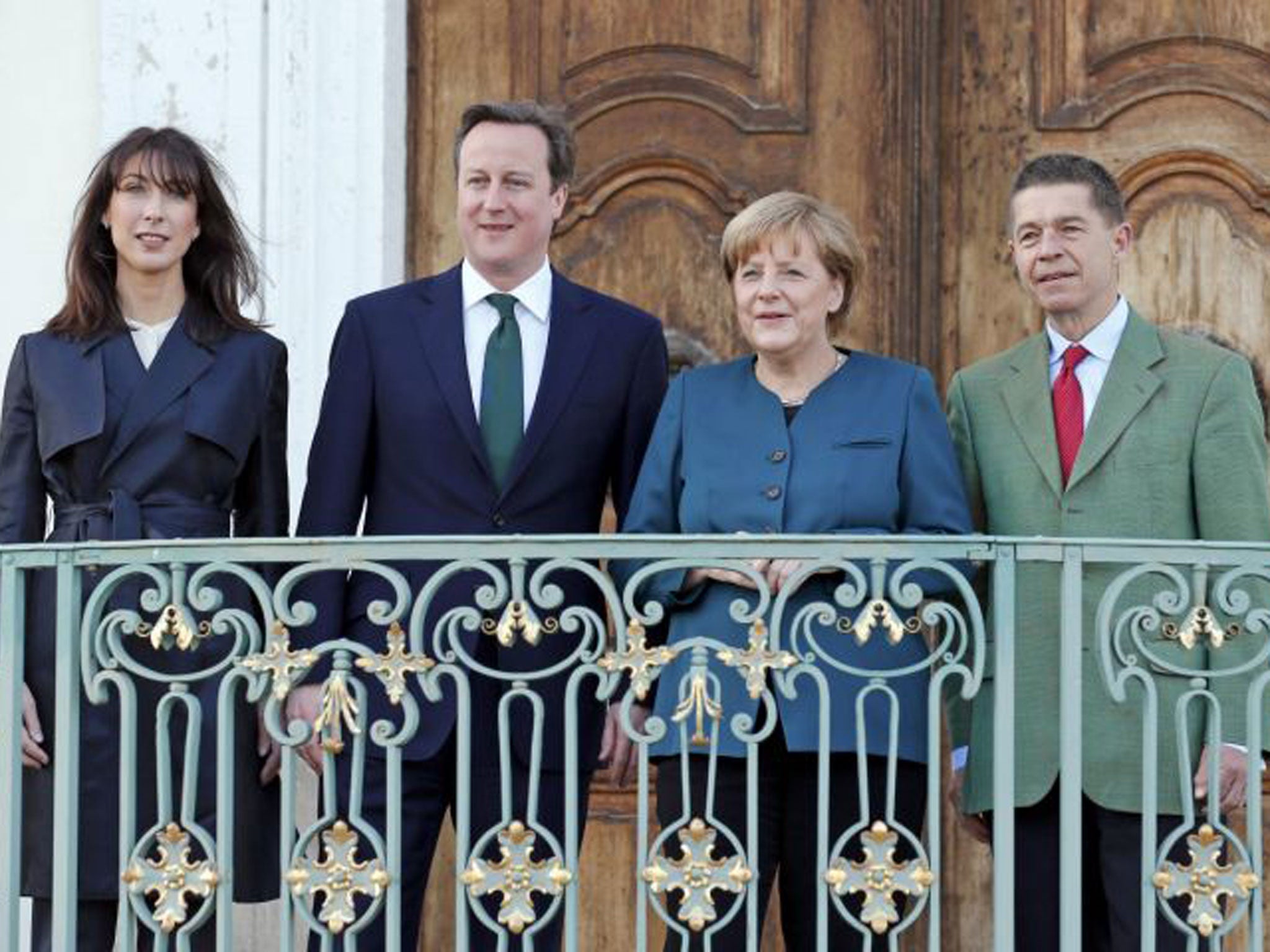David Cameron brings the kids – but he's the black sheep in Angela Merkel's EU family
German Chancellor goes all out on the hospitality front to keep Britain sweet

Your support helps us to tell the story
From reproductive rights to climate change to Big Tech, The Independent is on the ground when the story is developing. Whether it's investigating the financials of Elon Musk's pro-Trump PAC or producing our latest documentary, 'The A Word', which shines a light on the American women fighting for reproductive rights, we know how important it is to parse out the facts from the messaging.
At such a critical moment in US history, we need reporters on the ground. Your donation allows us to keep sending journalists to speak to both sides of the story.
The Independent is trusted by Americans across the entire political spectrum. And unlike many other quality news outlets, we choose not to lock Americans out of our reporting and analysis with paywalls. We believe quality journalism should be available to everyone, paid for by those who can afford it.
Your support makes all the difference.Angela Merkel rolled out the red carpet for David Cameron last night, but differences remained between the two leaders over whether the European Union needs a “big bang” revision of its governing treaties.
The German Chancellor invited the Prime Minister, his wife, Samantha, and, unusually, their three children for an overnight stay at her country residence in Meseberg, outside Berlin. Ms Merkel was accompanied by her husband, Joachim Sauer, who has only a handful of official engagements each year. Steffen Seibert, her spokesman, could not recall the children of another leader being invited previously. This weekend’s gathering “demonstrates how tight our friendship and partnership with Britain is”, said Mr Seibert.
The warm reception was a clear signal that Ms Merkel, the most powerful player on the European stage, wants Britain to remain in the EU, despite the alarm in European capitals at Mr Cameron’s promise to hold an in/out referendum by 2017.
After an informal dinner last night, the two leaders will hold talks this morning on the EU, North Korea, Britain’s agenda while it chairs the G8 nations and Syria, on which Germany opposes calls by the UK and France to ease the arms embargo to help rebels opposing the Assad regime.
The Prime Minister’s EU timetable looks increasingly ambitious. There is little appetite to rewrite the EU treaties to entrench reforms to the eurozone, on which he is banking so he can table Britain’s demands for the “new settlement” to put to the people in his referendum.
Yesterday the German Government made clear its priority was speedy eurozone reforms, if possible without a new treaty, to avoid the changes being delayed by a long negotiation and the referendums required in some EU countries.
“We should make a judgement about whether a treaty is needed at the end of the process, not at the beginning,” one source told The Independent.
The process could take years. But Britain insists treaty change is inevitable. There were signs at an informal meeting of EU finance ministers in Dublin yesterday that Germany might see the need for a treaty on banking union, only the first in a long line of possible eurozone reforms.
Mr Cameron is unlikely to regain the UK’s opt-out from social chapter of workers’ rights, won by John Major but given up by the Blair government in 1997. But he might secure changes to one element of it – the working time directive.
Yesterday Michael Meister, deputy parliamentary chairman of Ms Merkel’s Christian Democratic Union party, said Germany was “open for arguments” about moving some powers back to member states. “We want to unify Europe and we have to do it together. There are a lot of common ideas with the British side and the German side,” he told BBC Radio 4.
Douglas Alexander, the shadow Foreign Secretary, said: “Trapped by his rhetoric and his backbenchers, David Cameron still risks sleepwalking Britain towards the exit. The gap between what David Cameron can deliver and what his backbenchers are demanding continues to widen.”
Join our commenting forum
Join thought-provoking conversations, follow other Independent readers and see their replies
Comments